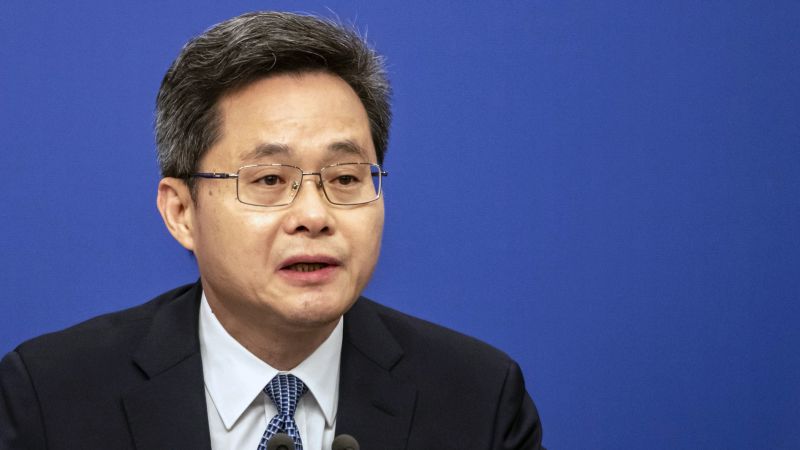China is planning to increase government debt issuance in order to provide subsidies to those with low incomes, support the property market, and replenish state banks’ capital. Finance Minister Lan Foan announced that there will be more “counter-cyclical measures” this year, without providing specific details on the size of the fiscal stimulus. The Chinese economy is facing deflationary pressures due to a downturn in the property market and weak consumer confidence, highlighting its overreliance on exports in a challenging global trade environment.
Recent economic data has fallen short of forecasts, raising concerns about meeting the government’s growth target of roughly 5% this year and the possibility of a longer-term structural slowdown. Despite expected weakness in the September data, Zheng Shanjie, the chairman of China’s state planner, has expressed confidence in meeting the growth target. This comes as the Communist Party’s top leaders signaled an increased urgency in addressing economic challenges, leading to speculation in global financial markets regarding potential fiscal stimulus measures.
Reports suggest that China plans to issue special sovereign bonds worth around 2 trillion yuan to support fiscal stimulus efforts. Half of the funds will aid local governments in managing debt problems, while the other half will subsidize purchases of goods, provide allowances to households with children, and inject capital into state banks to support the economy. These measures are subject to formal approval by China’s parliament, and the central bank has already implemented aggressive monetary measures to bolster the economy, particularly in the property sector.
While the fiscal stimulus measures have boosted Chinese share prices, analysts emphasize the need to address deeper structural issues such as boosting consumption and reducing reliance on debt-fueled infrastructure investment. Most of China’s fiscal stimulus goes into investment, leading to diminishing returns and high levels of debt for local governments. Beijing aims to support local governments in resolving debt issues and has funds remaining for the last three months of the year. Household spending in China remains low compared to global averages, with investment dominating economic output.
The private sector in China has faced challenges with falling wages and high youth unemployment, contributing to weak household spending. Reports show that average pay offered by recruiters in major Chinese cities decreased in the third quarter, indicating continued economic difficulties. Companies like Ikea have called for further stimulus to address the impact of the property crisis on their operations in China. As Beijing navigates economic challenges, it must address structural issues and focus on sustainable growth measures to mitigate risks of a slowdown and support consumer spending.


